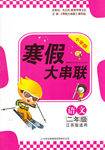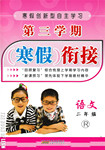题目内容
Things of Value
Our area was just a few miles from the largest wildfire in Colorado’s history. We were on “evacuation alert (疏散警报)”. If we got the 36 to evacuate, we would have to leave immediately.
We 37 suitcases with some clothes and set them by the door. We didn’t 38 these things were valuable, but time was. We moved the computers, with which I wrote for newspapers and made a 39 . We took family pictures off the 40 and packed them in boxes. These were truly valuable and could not be replaced.
Then we took a hard look at all that 41 . There was a lamp that belonged to my great grandmother. It was a 42 to my family. And there was the piano my wife 43 to play when she was a little girl. Not of great 44 in itself, but another family connection. It was impractical to move everything from our home and store them for an indefinite (无限的) time. Some important items would have to stay behind.
The thought of 45 something passed down from our families saddened me deeply, 46 I’d never been much attached to things. It’s about what they 47 —family and love. They each had a(n) 48 to tell, and some of them spoke in the 49 of our parents and grandparents.
The fire 50 reached our home. We were lucky. And though I felt grateful that all was 51 , I also realized just how fortunate I had been 52 . I saw just how rich my life had been.
Someone 53 said, “There are people so poor that the only thing they have is money.” And now I 54 I was indeed rich. I was rich in family, rich in memories, rich in everything that really 55 to me. I am wealthier than I ever believed possible.
It took a fire to teach me, I wonder if there is any other kind of wealth worth seeking.
36. A.answer B.task C.chance D. call
37. A.packed B.bought C.searched D. sold
38. A.worry B.think C.care D.doubt
39. A.mark B.sign C.living D.plan
40. A.albums B.ceilings C.windows D.walls
41. A.left B.remained C.burnt D.unmoved
42. A.connection B.present C.symbol D.treasure
43. A.forgot B.agreed C.learned D.refused
44. A.quality B.taste C.sense D.value
45. A.knocking out B.leaving behind C.giving away D.picking out
46. A.even though B.unless C.but D.or
47. A.contained B.included C.represented D.gathered
48. A.idea B.lie C.right D.story
49. A.sounds B.speeds C.voices D.feelings
50. A.once B.never C.seldom D.finally
51. A.spared B.returned C.stopped D.found

DABCD BACDB ACDCB ACDAB

 寒假大串联黄山书社系列答案
寒假大串联黄山书社系列答案 寒假创新型自主学习第三学期寒假衔接系列答案
寒假创新型自主学习第三学期寒假衔接系列答案More than 26 million Americans took part in the Vietnam (越南)War. More than 58,000 of them 21 ; over 300,000 were 22 , and nearly 2300 were missing and thought dead. Improved 23 services saved many soldiers with serious 24 that in earlier wars would have been fatal(致命的). More than 600 Americans were prisoners of war (POWs).Some POWs spent six years or even 25 in North Vietnamese prisons.
One of the 26 things of the war has been the fate of its veterans(退伍军人).The 27 of soldiers from the Vietnam War was not 28 celebrated. Americans 29 them with stony silence.
The public's 30 reaction made many veterans angry and 31 them. They had 32 a life-and-death struggle, obeying orders for their country's national 33 .In the book Born on the Fourth of July (1976).Vietnam veteran Ron Kovic expressed his 34 over their not being supported.
"I didn’t want to 35 it at first---people went against us when we were putting our 36 on the frontline for our country……How could they do this to us? Many of us wouldn't be coming back……"
Thousands of Vietnam veterans turned to drugs or 37 to kick the drug habits they had developed 38 the war. Many others had trouble in finding jobs or 39 down and starting families. Between 250,000 and 350,000 homeless Americans--nearly one third of the total 40 Vietnam veterans.
|
1. |
|
|
2. |
|
|
3. |
|
|
4. |
|
|
5. |
|
|
6. |
|
|
7. |
|
|
8. |
|
|
9. |
|
|
10. |
|
|
11. |
|
|
12. |
|
|
13. |
|
|
14. |
|
|
15. |
|
|
16. |
|
|
17. |
|
|
18. |
|
|
19. |
|
|
20. |
|
Think back to this time last year. What was on your mind?
Most likely, you were thinking about finals or the holidays, although in this city I’ve noticed that thinking about the holiday is a fancy way of saying how much stuff will I get.
Now reflect on your thoughts for this holiday season. Most people are still thinking about the holidays, but I say that with a grain of salt. Everybody with a functioning brain and the ability to communicate knows that this holioday season comes with a pretty large price tag: the debt of all the hardships, both domestic and foreign, that we’ve faced over the past 12months.
Let’s face it: some of us will get everything we want over the holidays. But there are others whose parents have lost their jobs or who have lost jobs themselves because of the current economic situation. As much as we try to ignore it, there is still economic unrest in the blue and gold suburb.
In this situation, we have three options. One: We ignore the situation, like we seem to do for every bad thing that happens around us, because by God, it’s the American Way! Two: We recognize that our economy is shot, feel bad about it and spend our time wishing for the good old days. Three: We recognize that our economy is shot, but instead of moping, reflect on every good thing that we have going for us. Now, which option sounds best to you?
I spent a week this summer working in and around New York City with the city’s homeless population. Or so I thought. Although a lot of the people I served were in fact homeless, a significant number of them had a job or a home or both. The truth of the importance of this situation is that they and thousands of others across the country can’t afford even the most basic things of life, even while working two jobs. Yet no one that I met complained about their hardships. Instead, they took whatever I happened to give them(which was, more often than enough, not enough) and were genuinely grateful for what they had.
Wrap your heads around that statement for a second. These people worked their butts off to stay alive with minimal results, yet were overjoyed by a flimsy(脆弱的) paper plate with donated green beans on it. Although I am ashamed to admit it( both as a girthy figure and an affluent citizen), I have taken for granted most of my meals, let alone green beans, and I know for a fact that I am not alone.
64. 1.According to the passage when people think about holidays they care much for ____.
|
A.where to spend their holidays |
B.how to spend their holidays |
|
C.what they can get for their holidays |
D.who they should go to visit |
65. 2.When the author wrote the article, the economic situation in his country ____.
|
A.began to go bad. |
B.began to improve |
C.was still serious |
D.was favorable for middle class. |
66. 3.The author wrote the article mainly to advise people____.
|
A.to be thankful in time of hardship. |
B.to spend their holidays in a wise way |
|
C.to think little about their holidays |
D.to help the country to sail through the crisis |
67. 4.It can be inferred from the passage that the writer is most probably ______.
|
A.a homeless child |
B.an old professor |
C.a famous scientist |
D.a young student |